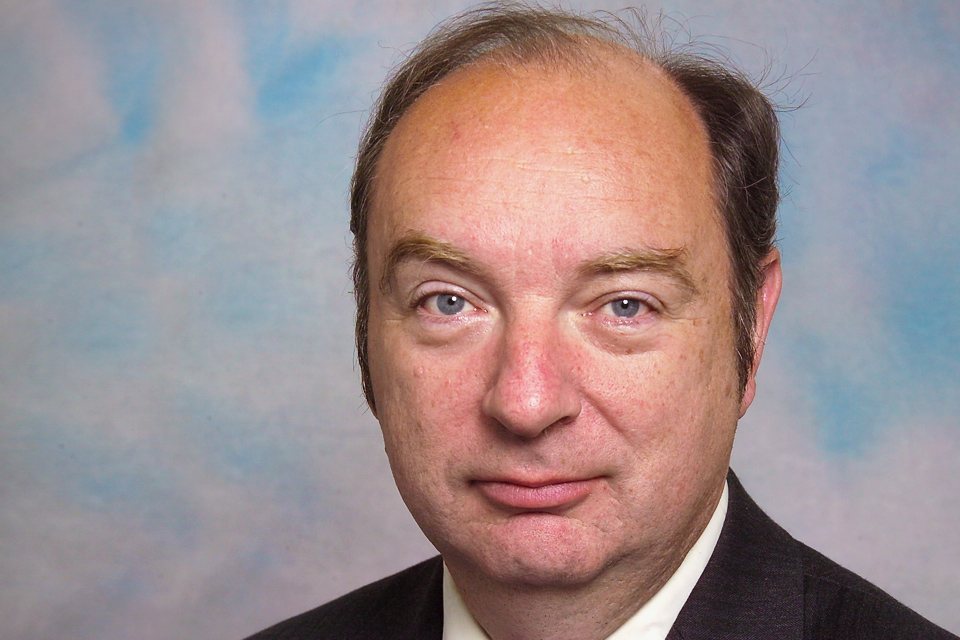Address to the Forum for Mobility Centres annual general meeting
Outlining DfT's priorities in the areas of mobility and access to the public transport network.

Forum for Mobility Centres address
Transcript
Thank you for inviting me to your AGM today (14 June 2013). I am sorry that due to other diary commitments, I cannot be with you in person, but I am pleased at least to be able to speak to you via video technology.
The coalition government recognises how important it is to be able to access jobs and key services, and the significant role transport plays in ensuring people can continue to lead independent lives.
This was particularly evident during last summer’s Olympic and Paralympic Games.
One of my department’s objectives is to remove the barriers that reduce people’s mobility and access to the public transport network, consequently, where necessary we have introduced legislation to improve accessibility for the elderly and disabled people.
Recently, for example, we have improved the Blue Badge scheme to protect it from fraud. We introduced a new badge which is as secure as a banknote,
We have also introduced a national online administration system enabling enforcement officers to check badge details using handheld devices.
The Disabled Persons’ Parking Badges Act, which received Royal Assent on 31 January, will allow enforcement officers to confiscate badges that are used fraudulently.
In March, I launched the department’s new Door to door strategy.
This outlines our vision for an ‘inclusive, integrated and innovative transport system that works for everyone’.
All the department’s actions aimed at improving accessibility for disabled people are set out in our accessibility action plan Transport for everyone, which we published in December 2012.
The action plan focuses on providing better access for all who want to use the public transport network, the need to provide better travel information and on improving attitudes and behavior towards disabled passengers in particular.
Transport operators have responded positively to these proposals, recognising the economic sense in reaching new markets and that improvements in these areas benefit everyone.
The department acknowledges that personal mobility is important to elderly and disabled people who cannot use the public transport system.
We also recognise that there is a need to strike the balance between personal mobility and road safety.
The primary function of mobility centres in assessing a client’s physical and cognitive ability to drive a vehicle safely - offering advice on aids and adaptations - is a crucial element in this process. With your expertise, there are other important roles for you to play.
I welcome the initiative taken by the forum to share good practice, and to look at training protocols for the safe operation of mobility scooters and powered wheelchairs.
This is a particular interest of mine as mobility scooters are clearly an extremely important aid to mobility. But too often we hear of incidents where pedestrians have been injured or a mobility scooter user has put themselves at risk, and we need to ensure that such incidents are reduced.
I understand that this will be discussed at the AGM, I look forward to hearing the outcome of your discussions.
I also understand that the AGM is hosting the first meeting of an expert panel, comprising senior clinicians and academics with an interest in mobility.
This will provide an important link with the health sector, ensuring that driving and mobility issues are included in relevant clinical pathways and that we engage in joined up thinking, across different sectors. I look forward to being updated on progress of the panel and in particular any policy implications for my department.
Finally, I understand that certificates are today (14 June 2013) being presented to students who have successfully completed the inaugural year of the Driving Assessment and Outdoor Mobility course which was developed to improve and maintain professionalism at mobility centres.
I appreciate that this area of work requires specific skills and knowledge. I would like to take the opportunity to congratulate you all on your achievements, and to wish you all the best with future studies.
In general, I would like to convey my appreciation for the excellent work undertaken by the mobility centres in providing advice, and carrying out over eight thousand assessments annually and to the forum for maintaining standards and providing an important channel of communication to the DfT, DVLA and the devolved administrations.
I wish you a successful and productive AGM and best wishes for the year ahead.